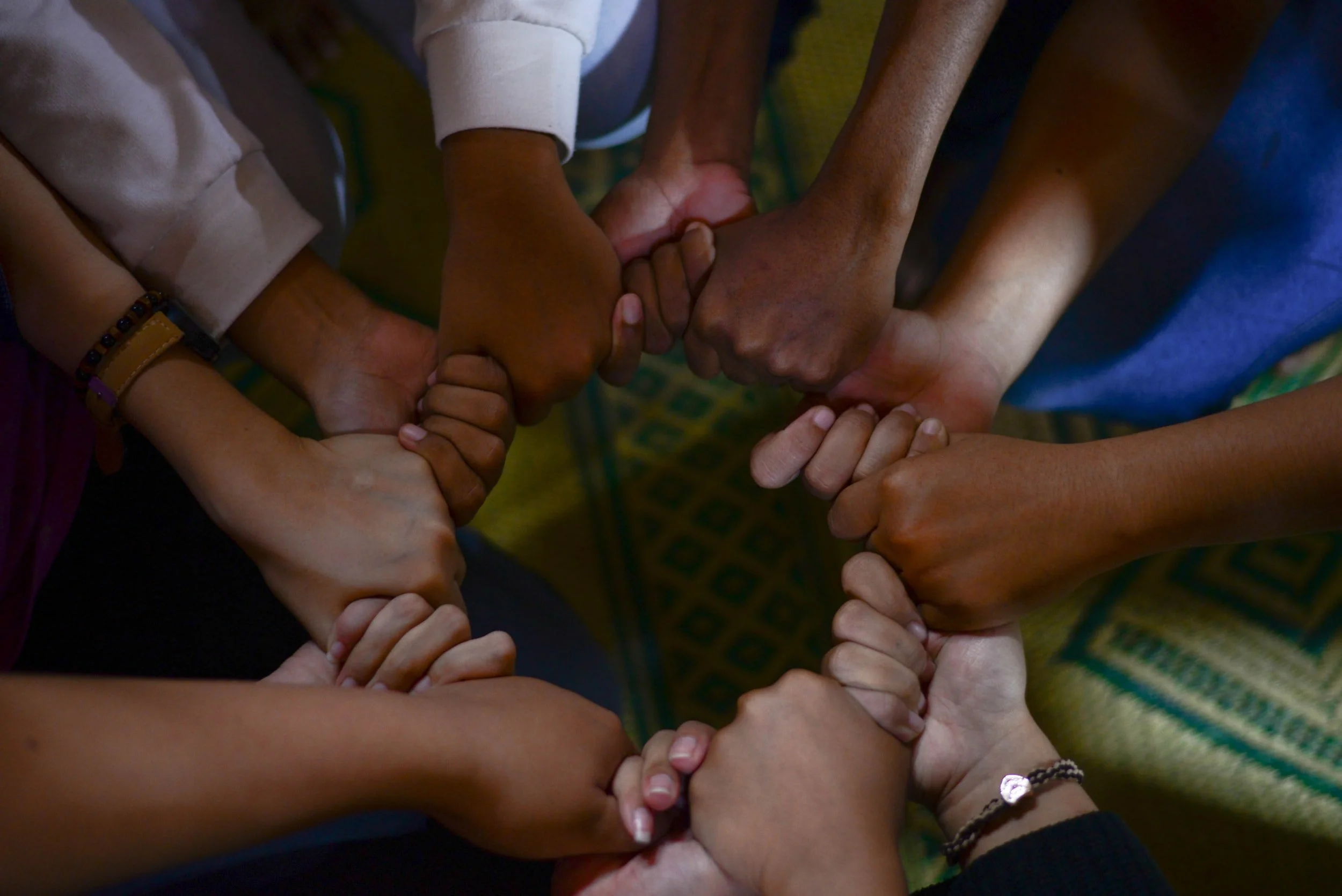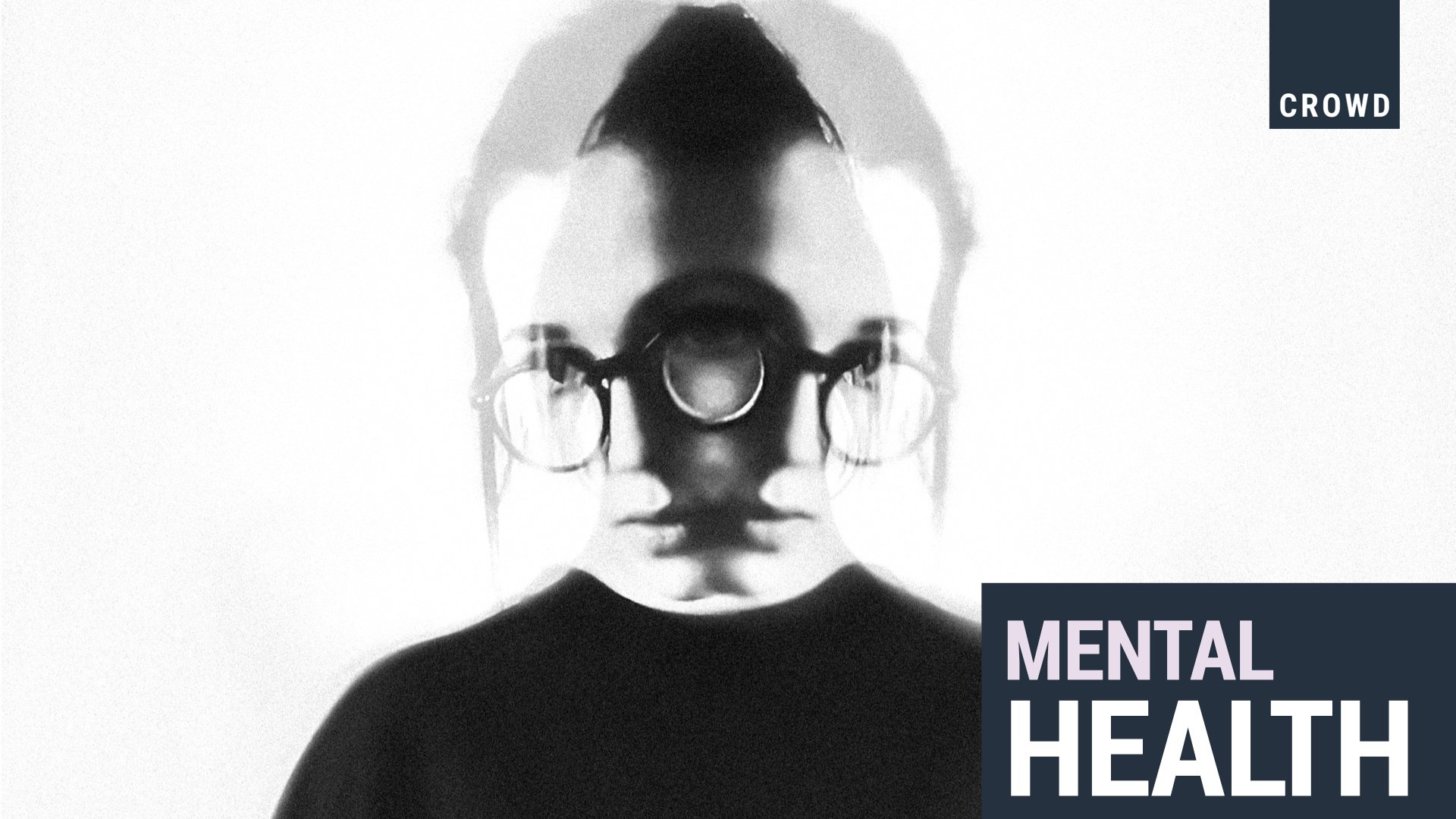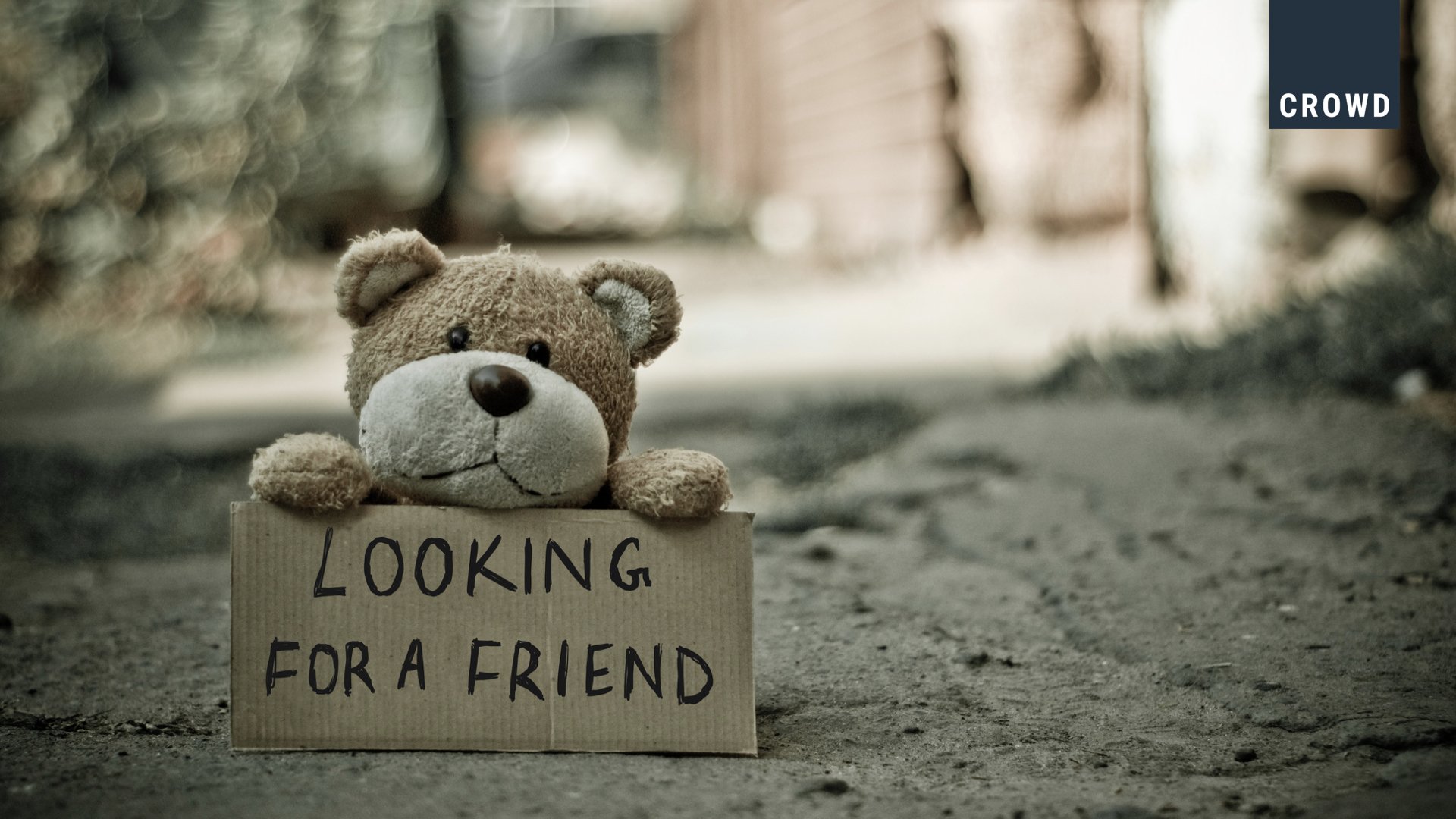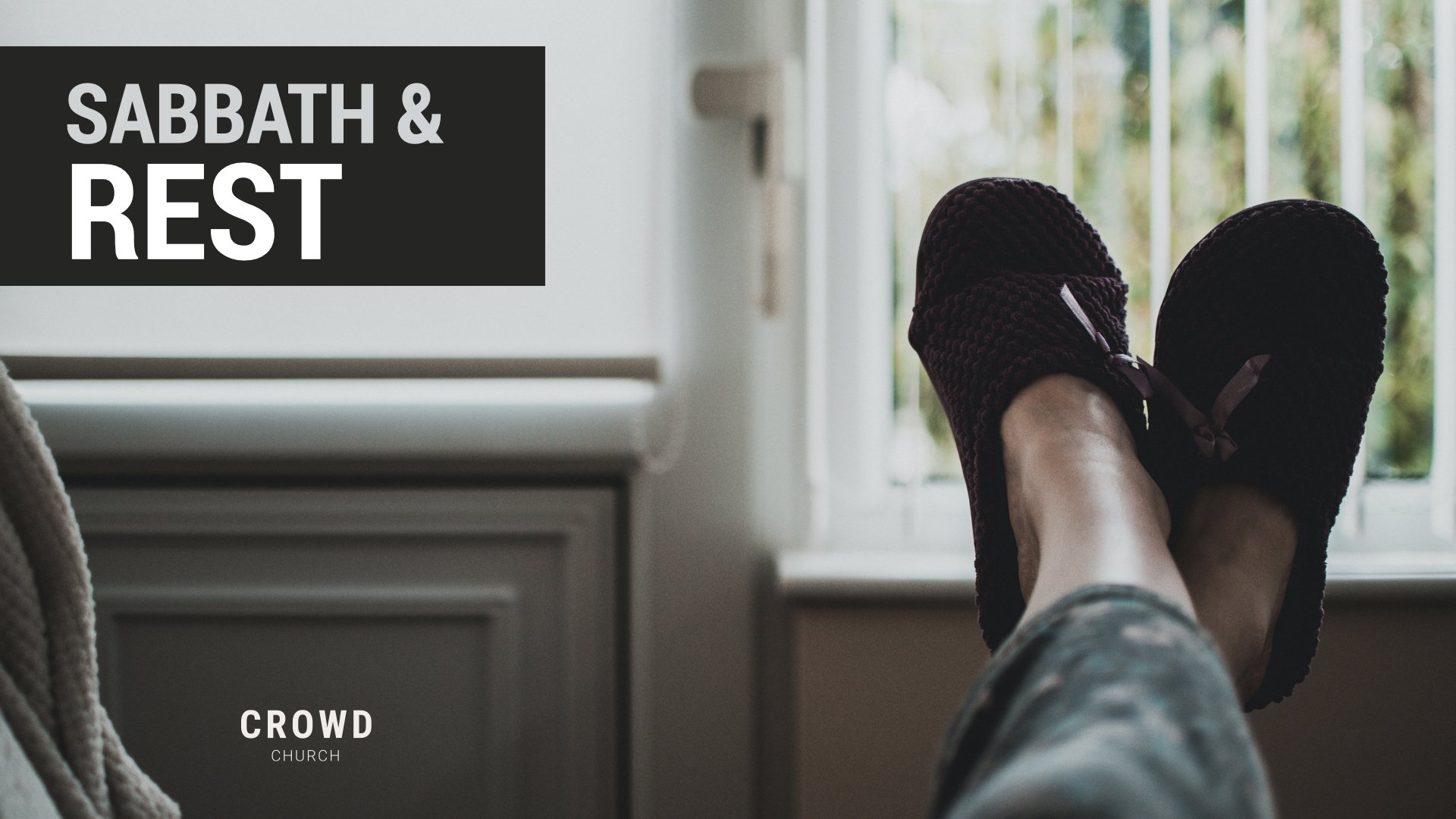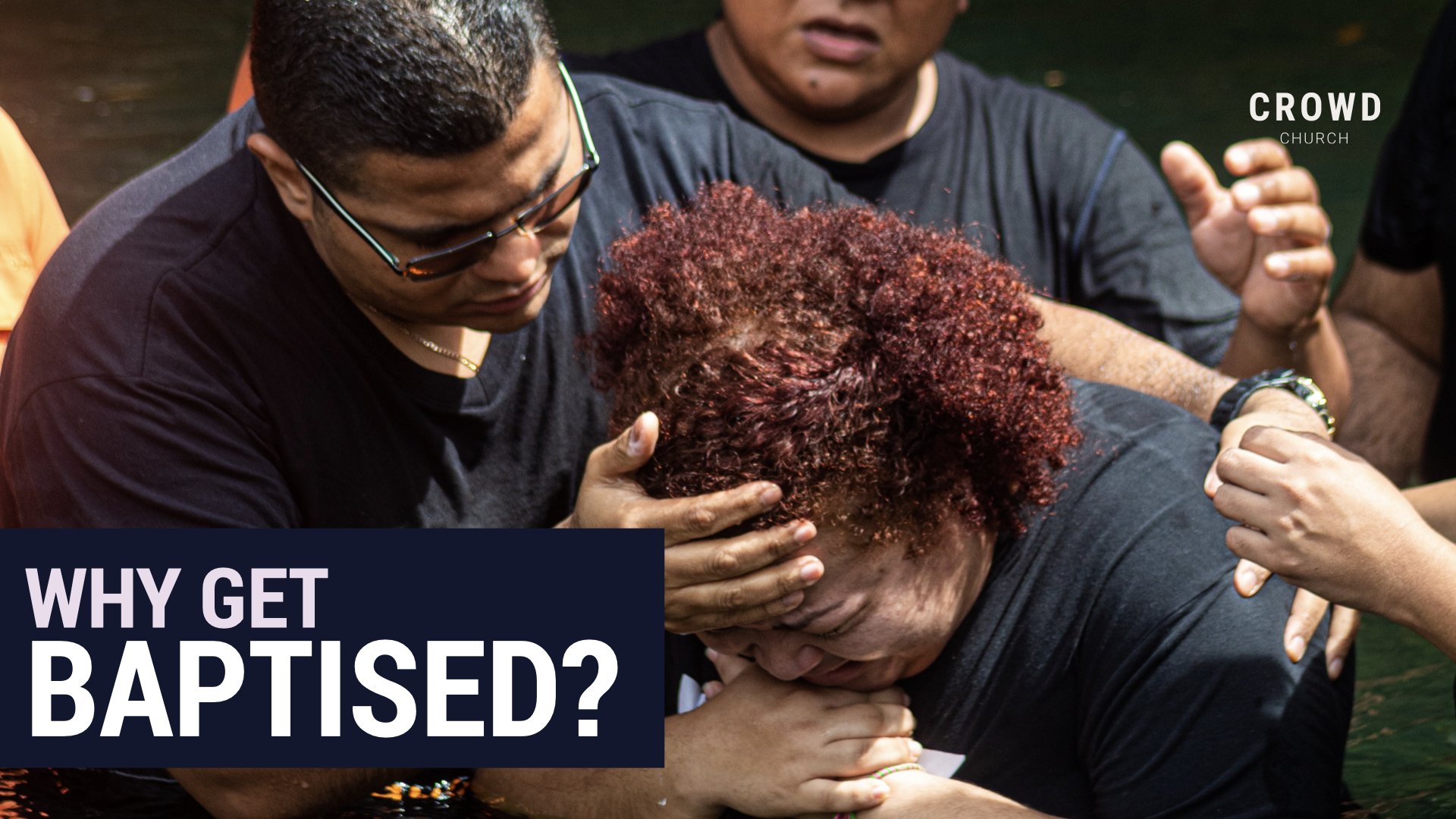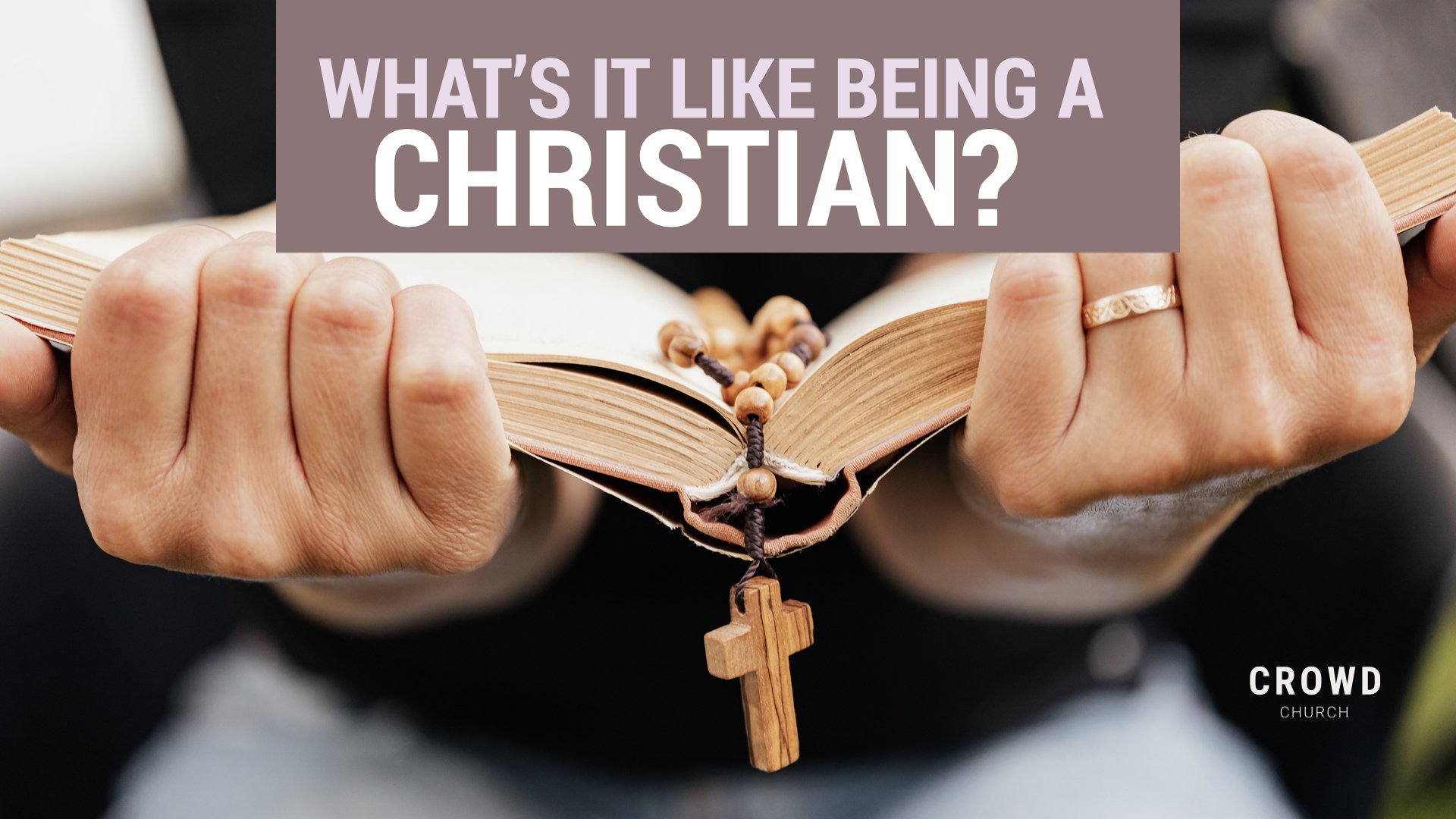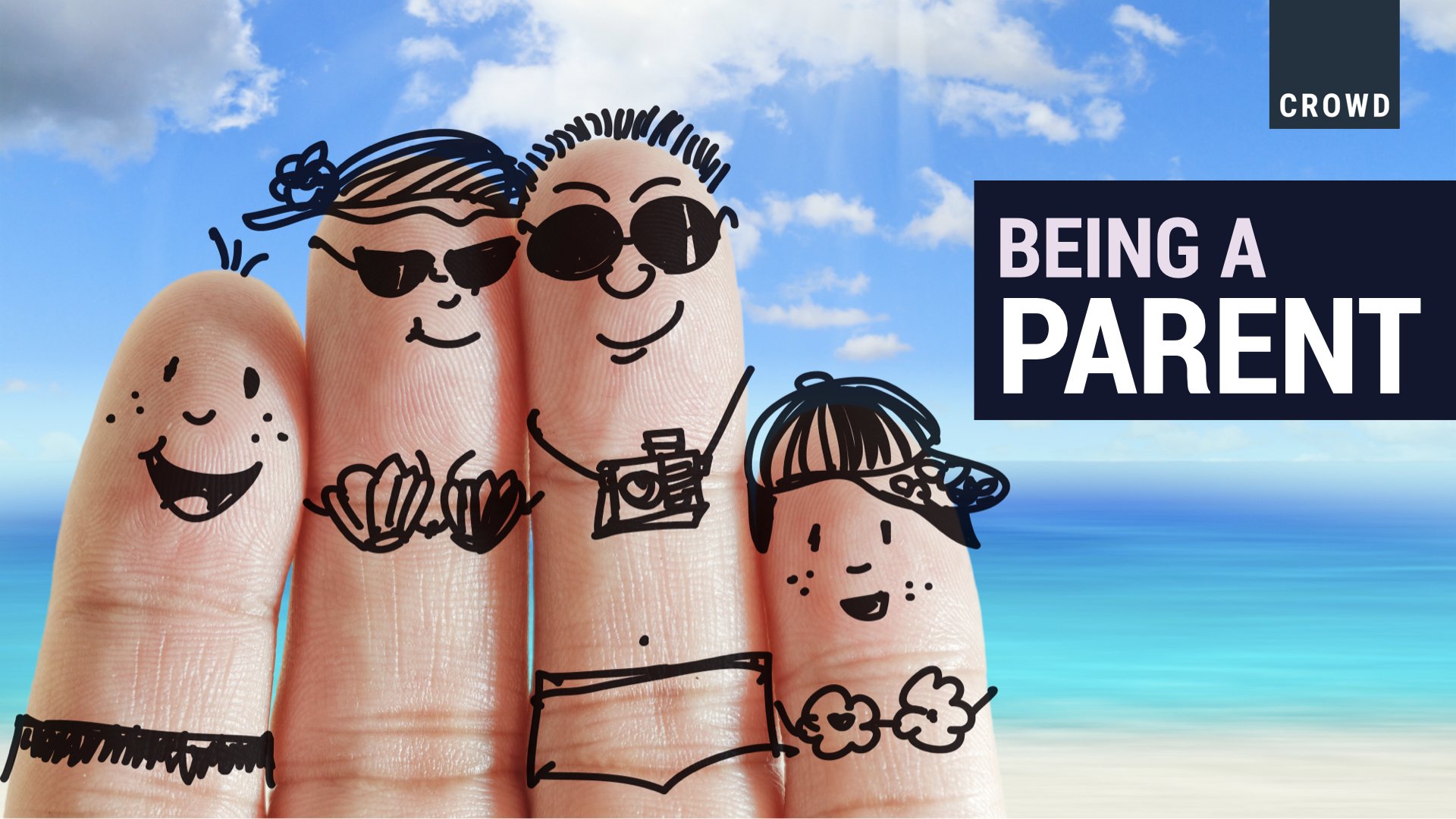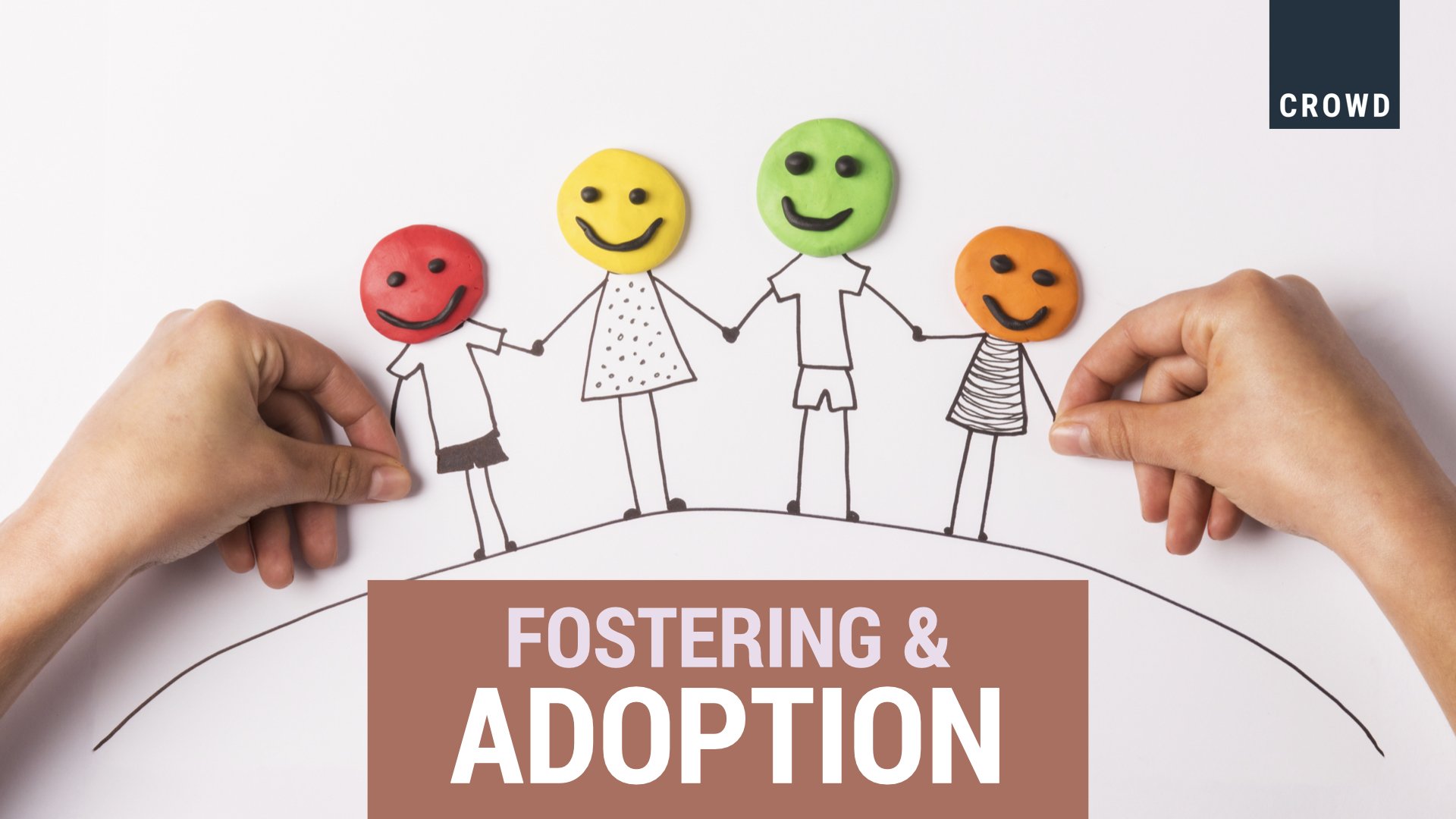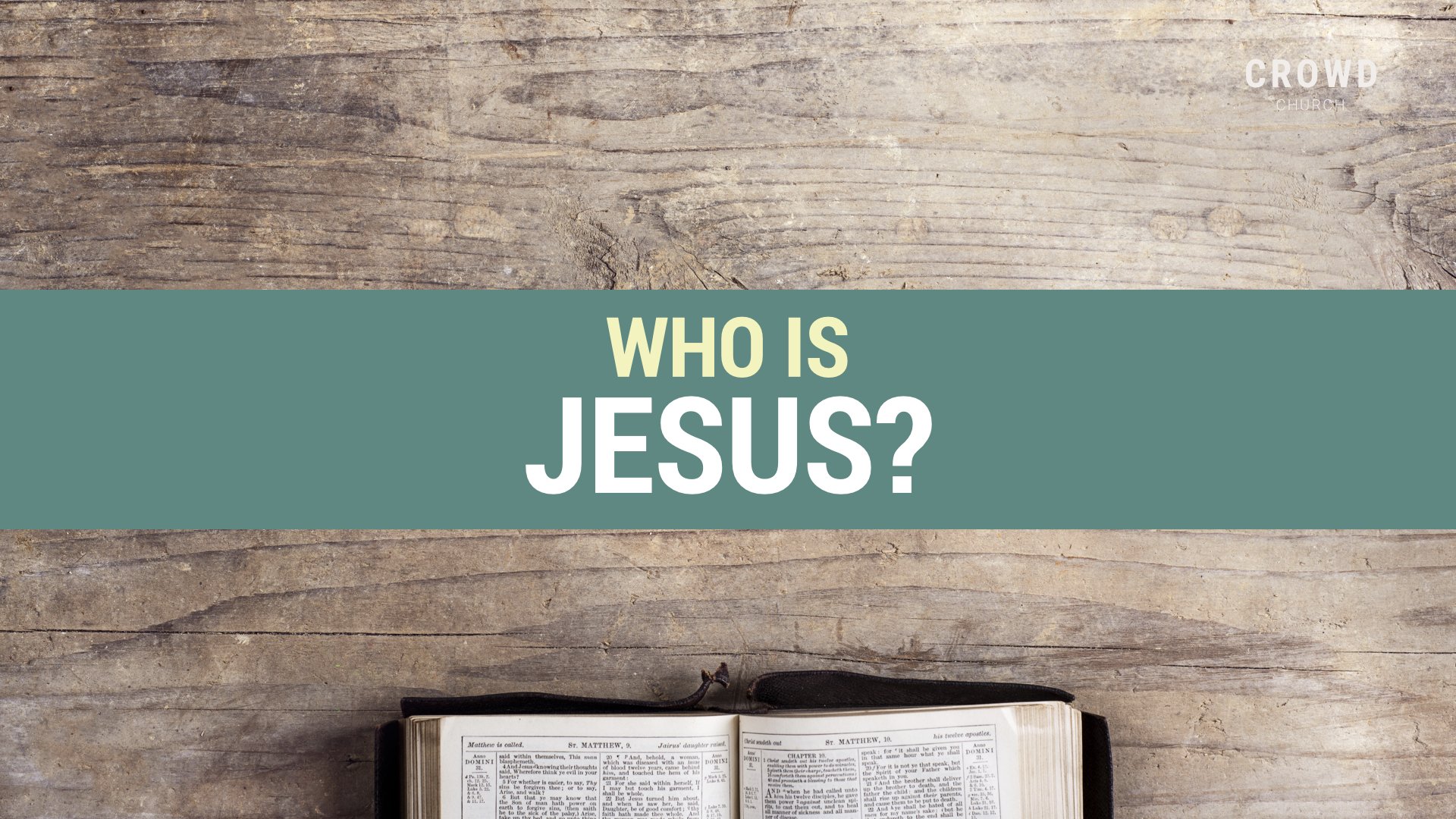What Does The Bible Say About Racism?
Video Timeline
WELCOME
0:00 - Welcome with Matt & Tony
TALK with Tony Uddin
05:29 - What Does The Bible Say About Racism?
07:26 - In Christ There Is Unity
09:02 - Why Do People Have A Hard Time With This Issue Of Race And Ethnicity?
12:41 - Racism And The Bible
14:31 - God's People Are One Race - The Human Race
16:19 - Racism Is A Sin
18:18 - The Church Is God's Answer To Racism
22:24 - The Work Of God Brings Change
23:25 - Be The Change You Want To See
WORSHIP
29:07 - Reckless Love with lyrics
CONVERSATION STREET with Matt & Tony
35:13 - Conversation Street
CLOSING WORSHIP
1:06:08 - Christ Our Hope In Life And Death with lyrics
Podcast:
What does the Bible say about Racism?
— Tony Uddin
“Remember that at that time you were separate from Christ, excluded from citizenship in Israel and foreigners to the covenants of the promise, without hope and without God in the world. But now in Christ Jesus you who once were far away have been brought near by the blood of Christ.
For he himself is our peace, who has made the two groups one and has destroyed the barrier, the dividing wall of hostility, by setting aside in his flesh the law with its commands and regulations. His purpose was to create in himself one new humanity out of the two, thus making peace, and in one body to reconcile both of them to God through the cross, by which he put to death their hostility. He came and preached peace to you who were far away and peace to those who were near. For through him we both have access to the Father by one Spirit.
Consequently, you are no longer foreigners and strangers, but fellow citizens with God’s people and also members of his household, built on the foundation of the apostles and prophets, with Christ Jesus himself as the chief cornerstone. In him the whole building is joined together and rises to become a holy temple in the Lord. And in him you too are being built together to become a dwelling in which God lives by his Spirit. ”
In Christ There Is Unity
I believe God's Word has a lot to say about racism, but also about how people can work together, how in Jesus Christ, people of different cultures can be brought together. Jesus is the one that reconciles us and the church ought to be a place where racism shouldn't exist. Unfortunately and sadly, it does. In too many places, 10:30 on a Sunday morning, as people gather for church, is one of the most segregated times of the week. That really troubles my heart.
But also, the Church of Jesus can be an incredible place where people from different races and cultures, different backgrounds, different life experiences, come together and share life together as part of a vibrant and intercultural community. I think about my experiences of travelling in places that have suffered significant racism and been marred by it, experiences of being in Balkan countries and seeing churches building reconciliation across ethnic lines when no one else is.
Why Do People Have A Hard Time With This Issue Of Race And Ethnicity?
It's important that we do talk about racism. I don't know what hearing a sermon on it makes you think about. For some of us, it may fill us with dread. For others of us, we might think, "Great, finally someone in church is going to talk about it". But we have to because it's such an important thing, and it affects so much of the world in which we live.
If you say I don't really see race, well, that's a really privileged position to be in. But the reality for most of us, is that race and racism has played a huge part in our experience of life. It's a big issue particularly for us here in the UK because in one sense we're a very diverse culture, a very diverse society. We've got people from all kinds of backgrounds, very different ethnicities. Where I'm from in Tower Hamlets in East London, is incredibly, racially diverse. It's often celebrated for that, and yet somehow, that just skims the surface of it because the reality is those communities are often just existing side by side without any real interaction.
So sometimes our idea of how we deal with racism, and just getting on actually just resorts to people living separated lives. I believe the Bible presents a compelling, beautiful, and life-changing picture that the church can be a place where people come together, and share life and life in all of its fullness. The reality is, for most of us, we see elements of racism in so many different aspects of our lives. Maybe it's not the overt racism of the Klu Klux Klan, but the subtle kind of racism, the kind of internalised prejudice or decision making, that doesn't really wear the tag "racist", but is often coming from that same place. I believe, as a church leader, my heart is to grow vibrant intercultural church where people really cross barriers.
I'm passionate about racism because of my background. I'm half Bangladeshi, half Scottish, 100% English, and racism has played a part in my life. So whoever you are, I think the Bible has some relevant things to say. In the passage that was read out earlier from Ephesians, we see the way in which Jesus not only reconciles us to God, he doesn't just break the dividing wall between us and God, but actually, he breaks the dividing wall between different races, between different ethnicities. The idea is that Jesus creates one new creation, humanity in Jesus. The dividing wall between man and God is broken, but also between different races as well.
Racism And The Bible
There's a really interesting example of racism in the Old Testament in Numbers 12. We read there,
“Then Miriam and Aaron spoke against Moses because of the Cushite woman whom he had married (for he had married a Cushite woman); and they said, “Is it a fact that the Lord has spoken only through Moses? Has He not spoken through us as well?” And the Lord heard this. (Now the man Moses was very humble, more than any person who was on the face of the earth.)”
“And the anger of the Lord burned against them and He departed. But when the cloud had withdrawn from above the tent, behold, Miriam was leprous, as white as snow.”
It's really interesting, it seems like a lot of the difficulty Moses was facing in the criticism was on account of his wife who was Cushite. It's highly likely that she was black. And in fact, Cushite people were famed for their dark skin. It seems like somewhere along the line, what is driving these people's criticism of Moses isn't just his decisions as a leader, but actually, it's the fact that he was married to a black woman. Interestingly, God judges their actions. One woman who criticised Moses actually becomes white with leprosy, a skin disease. It's almost like God is saying, "well if that's how you want to play it". We see examples of racism in the Bible, and we see that God is a God who confronts it.
God's People Are One Race - The Human Race
In Ephesians 2 we see that God in Jesus deals with what divides people from one another. Verse 13 says,
“But now in Christ Jesus, you who were once far away have been brought near by the blood of Christ, for He Himself is our peace, who has made the two groups one and who has destroyed the barrier, the dividing wall of hostility... ”
What that's speaking about, is the difference between Jews and Gentiles, Jews and non-Jews. We see that Jesus tackles that sense of division. In the Old Testament, in the temple, we see that people were divided from one another, the Holy of Holies was curtained off, and the priests could only go once a year. We see in the outer courts and the courts of priests, priests divided from people, men divided from women, the Court of the Gentiles kept the Gentiles from the Jews - people divided. And it says there,
“by setting aside in his flesh, the law with its commands and regulations. His purpose was to create in himself one new humanity out of the two, thus making peace. ”
In other words, through his own sacrifice, through dying on the cross, Jesus breaks what divides people from each other. Humanity as one new creation.
Racism Is A Sin
How do we deal with racism? I believe that ultimately, we realise that each of us have tendencies towards it. Racism isn't just a problem for one race. There's something about human nature that's inherently selfish, and inherently causes us to think more about ourselves than we should and less of others than we should. It devalues human life and it is that which is at the heart of racism. Jesus, once and for all defeats it on the cross. As we are made new in Jesus, God forgives us our sin and makes us new from the inside out, not perfect, but forgiven. He deals with the problem of our sin, which divides us from God, and gives us the hope of eternal life with Him, but also makes it possible to deal with our sin, which divides us from each other. Those who are far off have been brought near. One of the amazing things about the cross is that for somebody like me who's not a Jew by background, I am included in God's blessing that was previously only on his people, the Jews.
When we think of others, do we think of ourselves more highly than we should? Do we think of others lesser than we should? Do we think of the world in terms of me and my people, and other people? Jesus breaks the dividing wall. In Jesus, we have the prototype of all reconciliation, but it's only ultimately through Jesus.
The Church Is God's Answer To Racism
Peter, one of Jesus's disciples, also has a really interesting story when it comes to sleep in difficult times. It was during the time after Jesus had ascended to heaven that this blood-thirsty, maniacal leader of the day called Herod decided he wanted to kill the Christian leaders of the time and increase the persecution against the church. So, he has Peter arrested. Now, Herod wasn't arresting Peter to have a one-to-one with him, so he could talk about donating funds to the church roof project. No. Instead, Herod has Peter thrown into prison, and the plan is to bring him before the crowds on Passover. The Bible tells us that when Herod had seized him, he put him in prison, delivering him over to four squads of soldiers to guard him, intending after the Passover, to bring him out to the people. So Peter is arrested, thrown into prison, he has four squads of soldiers to guard him. The next day, like I said, he's gonna be brought out to the crowds, which is the same crowd that has a habit of crucifying people they don't particularly like. This is a situation that would cause anxiety in me, that's for sure. Peter is in a genuine life-threatening situation. So what happens?
I believe on the back of that, the church is a visible sign. It declares the wisdom of God, that God can take people who wouldn't even sit around a table together. If you imagine the divided culture that the New Testament was written in, where Jews and Gentiles wouldn't eat at the same table, they wouldn't go to one another's houses, and in the midst of that God calls a people from both of those cultures. God calls Jew and Gentile together.
The truth of the New Testament is that God called slaves and free people together, saying that in Christ they are one. They are all created in God's image. Another dividing wall broken. God calls men and women together, old and young, rich and poor. God is the one who breaks walls that divide, and the church of Jesus ought to be a visible sign. In 2 Corinthians 5:17 we read,
“Therefore, if anyone is in Christ, he is a new creation. The old has passed away; behold, the new has come. All this is from God, who through Christ reconciled us to himself and gave us the ministry of reconciliation.”
So that means that as Christians, we don't get to live divided lives. We don't get to build segregated communities. We shouldn't have any form or any part in racism. We shouldn't be spending our lives erecting walls which keep people apart. Actually, our job as Christians, is to be ministers of reconciliation. That means that because we've been made acceptable to God through what Jesus has done, because we've been brought back to him, because the dividing wall between us and God is broken, God wants to break down dividing walls between us as people. That's part of the church's job, to say that we have been given the possibility to be agents of change. In verse 16 of that passage, 2 Corinthians 5:16 says,
“...we regard no one according to the flesh. ”
In other words, we are not judging by physical characteristics or skin color. I love that in our local church, there's a rich mix of cultures, of backgrounds, young and old, rich and poor, different nationalities, different ethnicities, different social classes, and it forces me to confront the prejudice of my own heart. Because the reality is that each of us has prejudice. And I want to say that whoever you are, what are the prejudices in your lives? What are the things that keep you divided from others? What are the things that cause you to think too much of yourself, of your own culture, of your own race, and to think lesser of other cultures and other races? Why do you see them as inferior?
The gospel, the good news of Jesus confronts that. Let's not pretend that racism is something others have to deal with. As Christians, we should be at the forefront of racial reconciliation. That means owning, accepting, confessing our sin where we've done wrong. It means that we don't just look at racism as the problem of somebody else, but we recognise where there are elements of thinking like that in our lives. We ask for God's forgiveness, we seek to change and we seek forgiveness from others. This is something that God loves.
The Work Of God Brings Change
He can change the things about us that actually are what generates racism and prejudice in our life. I think that's really important because our culture and our world window dresses. We want to deal with the symptoms of racism. We want to have an equal society, and that's brilliant. But unless we drill down to the cause, which is the human heart, we'll never change it. We'll never change problems of racism by just barking at others to change. I think it's beholden on each of us to say, yes, we want to affect structural change. Yes, we want an equal society. Yes, social campaigning is important, but also are we going to be brave enough to look into our own hearts, and see where there is darkness?
Be The Change You Want To See
So how can we work some of this out practically? Well, firstly, I think on a very basic level we can choose to spend time with people who are different to ourselves. In our church, we have a culture where we specifically ask of our leaders that they be people who are intentionally building friendships and sharing life with people of different cultures. I think there's something dehumanising about a church in a multicultural area like London or Liverpool, if people are living monocultural lives. The way we begin to address some of that change is we intentionally share life with people who are different. We intentionally build friendships, we intentionally invite, we intentionally get to know. We want to really be people who are proactive in living the change we want to see. This means that we choose not to judge people based on their race or ethnicity, and that means even in the subtle things.
For some of us, if we saw a black person in scrubs in a hospital, we'd assume that they're an orderly or a nurse, rather than a surgeon. That's a form of racism right there. We might assume that people act in a certain way because of our prejudices which exist. What we have to do is we have to choose, as far as is possible not to judge people, or to predict their actions based on their race or ethnicity.
As a church, it means we pursue what unites us, and not what divides us. It means that if there are things that we do that we know make it difficult for other people, of other cultures to share life with us, then we try to address those issues. In the book of Romans there's this principle of pursuing what makes for building up one another. Paul says, basically, if what you eat or drink, or how you view what days are special is causing others to stumble, then actually back off it because you don't want to be responsible for causing division. In a very real sense, we're intentionally building an intercultural community. That means we are prepared to look at what are my behaviours that cause issues?
Lastly, we choose not to assume that we are better than others, or that our way is right. On the live stream, we're going to just be able to unpack some of this, and go through and really talk this stuff through. It's so important that we do, because actually, I think that that inward work of asking, what are my assumptions? What are my prejudices? What are the things and attitudes and actions that pervade my life? Those are the things we want to talk about. I think if we look to live and be change in our own lives, then I think we start to see change.
Philippians 2:3-4 talks about humility.
“...value others above yourselves, not looking to your own interests, but each of you to the interests of the others.”
The good news of Jesus confronts our selfishness, and the good news of Jesus challenges that selfishness and challenges us to a life of self denial that sees others as better than ourselves, and looks to live and esteem others. So I want to challenge you. What would God put his finger on in your life?
God bless you!
CONVERSATION STREET
With: Matt Edmundson & Tony Uddin.
What is Conversation Street?
Conversation Street is part of our live stream, where the hosts (in this case, Matt & Tony) chat through Tony’s talk and answer questions that were sent in through the live stream. To watch the conversation now, click here.
Matt: I kind of get the feeling that this is not the first time you've talked about racism, would that be correct?
Tony: Yeah, I think it's something we probably haven't talked as much as we should do in churches generally. A couple years ago, when the Black Lives Matter thing came to the fore again, that moment after George Floyd provoked some discussions that were long overdue. In places they were just a response in the moment, and then back to radio silence. It's kind of disappointing.
Why Do You Think Radio Silence Is The Default?
Matt: Why do we talk about it for a bit and then go quiet again?
Tony: I think we're often not sure what to say, or we're afraid of saying the wrong thing. In our day and age you can get into a lot of trouble really quickly by saying the wrong thing. I think a lot of people are genuinely frightened. I think we also don't know how to have a conversation with integrity. We've lost some of the ability to disagree well, or talk about difficult things. But, if we're aware that our structures don't reflect a good sense of diversity in terms of race, then when we start that conversation, people say, "well, what do your structures look like?" So I think sometimes people really don't know where to start. Other times, we don't want to offend somebody. We realise that our structures have been built in wrong places, and to unpick that is going to be painful.
Matt: Yeah, I can empathise with that. I would classify myself as white, male. The thing that I've found over the last few years is that a lot of the conversations have been quite challenging. Some of them have been quite harsh from different sides. What I liked about your talk is that you brought it back to the gospel, which is something I feel very comfortable talking about.
The principles you talked about can all be found in Jesus. This whole idea of no division, about being one. So I get that it's a hard conversation to have, but I also get that it's a needed conversation to have.
Tony: 'We Need To Talk About Race' by Ben Lindsey is a great place to start. What's good about it is, the context is the UK church, and it's a really helpful reflection on experiences of black people in churches. I'd recommend it.
Matt: Yeah, it's great. There's another book out called, God Is Not A White Man by Chine MacDonald, which is quite an arresting title for a book. It kind of jars you in the face which is good because God is not white and God is not a man. The irony being, of course, Jesus was definitely not white. I mean, the guy operated in the Middle East, right?
Tony: Yeah. I think even that assumption in the West, on who God is, has come from a place that's profoundly unhelpful. You say something like that, and some people will really react to it as if you're saying something heretical. I think it shows how entrenched our wrong thinking can be.
Matt: Yeah, I think you're right.
What Does It Mean To Be "Intercultural"?
You mentioned this phrase at the start, that your passion is for an "intercultural church".
Tony: Yeah. It's a really useful distinction. So I think we live in a world that values diversity, it wants diversity, and it doesn't know how to do it. It's a great goal, a great aspiration, but actually, what we often settle for is a form of multiculturalism. Again, people mean different things by those terms, but the way it works out is essentially people living alongside each other, but very separate lives. So you have different communities. Where I am in East London, we have the Bengali community, Somali community, working class, white East End community, the Canary Wharf type, city type people, and an artist community. There's really little meaningful overlap between those communities. It's sad, because it just says, "I'm going to have a really low expectation and, and we'll try not to quarrel. Then we celebrate that as diversity.
When we talk about an intercultural church, we're talking about a church where we are respectful of, we're learning, we're in dialogue with one another, and we're growing together. That goes beyond just tolerating one another. It goes beyond just existing together, but actually, it says we're going to learn together. It says, I don't just want to have a multi ethnic church where I've got people with different skin tones, because if we're honest, at times, that's what we go for. We get to the point where we'll just settle for having different people of different races because we like the optics of it, but in an intercultural church, you can bring your culture to church. We're not wanting people just for their skin tone, but we're actually saying, we recognise and see God working out his greatness in different cultures, and we're gonna learn from that, we're going to celebrate it, we're going to give people room to not be just from a different culture, but to bring that to church together. It gives much more of a rich understanding of what doing life together as one community can look like.
That's something I'm passionate about. Again, in the response to George Floyd, there's been a lot of wanting our visuals and optics at church to look better. Actually though, unless we're genuinely intercultural, unless we're genuinely valuing people for who they are and their culture, we're just window dressing. I think it dishonours God, it dishonours church.
One of the big shaping things for me was, years ago, I sat with a group of pastors in Chicago. Chicago is a really diverse city. I sat with a pastor there who said to me, "10:30, Sunday morning is the most segregated time of the week". He said, "we live in streets that are mixed, we work in offices that are mixed, Sunday, we worship in our own churches". And I just thought, "wow, that shouldn't be, you know?"
I would say we really do need to challenge that kind of way of thinking. It happens in the UK. I think in the US, it's more pointed around race. I think a lot of those things are valid around race here, but I class is one of those other big distinctions in Britain that probably also really needs dealing with at the same time.
Matt: I get what you're saying about the intercultural church. I understand this sort of multiculturalism has become, we're just going to tolerate one another, we're not going to say anything bad about you, but we're not really going to get to know you. We're not going to invest time, we're not going to promote you in any way. Church has, like you said, been window dressing. We want people with different skin tones on there. One of the things that you mentioned is that, to talk about racism, we should be striving for this intercultural church, but the place that we have to start is with our own hearts, even if we perceive that we're not racist. That's also a comment I hear from a lot of people, especially white people. "I'm not racist, I have a black friend". It's kind of like a badge, which proves I'm not racist. But actually, that's not what you were getting at, was it?
Tony: No. We have to understand that prejudice begins in our own hearts. As soon as we give ourselves a pass, we're going to miss the point. We need to look at our own assumptions.
One of the interesting things about being mixed race is that people will make unguarded remarks in different situations because they see you as one of them. You're around white people, and they'll make an unguarded, racist remark because we all look similar. I'll be around Bangladeshi people, and they'll make an unguarded racist remark. One of the things I really see in this is that there is something about each of us that tends to view ourselves and our culture as right. That means that we as Christians need to start with our own hearts and then begin to challenge wrong structures. If we believe that all of us have brokenness around race in our life, then we've got wrong things in our hearts, and we're going to build structures in society, in the workplace, in families, and also in the church that are wrong and that have elements of racism in. It's really important that in church, we're at the forefront of challenging wrong structures within the church, but also in society.
Two years ago, when suddenly people wanted to talk more about race, I heard a lot of pastors and Christian leaders speaking out about racism, and I was really pleased to hear that. I also know that some of those same networks and leaders don't have any non-white people in leadership. I think part of that is yes, challenge the structure, but actually own the behaviour and say, we have done the same. Otherwise, it's just grandstanding. So I would want to say we need to be in the place of challenging structures, and challenging our own hearts - that's difficult.
How Do I Challenge The Prejudice In My Own Heart?
Tony: Sometimes it is the assumptions we make. When we look at a situation and we prejudge someone's motives, and we do. One of my good friends James, who is black, will say that if he walks home at night, people will just walk towards the other side of the road when they see him sometimes because they make assumptions about what he looks like. At that point, if we find ourselves thinking those kinds of things, we do need to challenge that in our hearts, we do need to recognise, hey, that's a sign of prejudice. We expect a lower standard of behaviour from a different cultural group. I think that is part of that process.
Also, it's realising the things that we are responsible for. Are we creating space and genuinely valuing people of different backgrounds? In our church, if we're appraising someone for a leadership role, we won't give responsibility to anyone that we don't actively see making an effort to build life and relationships with people who are different to them. Not just in a passive sense of, I'm not going to tell a racist joke, but the positive sense of valuing others and living out that value. If we don't see that in someone's life, we don't want them to be a leader in our church. I think that's how you change structures, by actually being serious about this stuff.
Matt: Yeah. That's a really interesting point.
How Does Your Church Service Express Being Intercultural?
Tony: Yeah. So one of the things that we would do at church is that we want to make sure that our services reflect the local community. We want to make sure our leadership team looks like the local community. That means we're intentional around leadership development, it means that if you come to our service today, you would see our service was hosted by a Bangladeshi woman from a Muslim background. She hosts brilliantly, but actually, she stumbles over her words sometimes or mispronounces. We realise that there is something new that she brings in how she hosts; she brings some of her culture. And the fact is, loads of churches just wouldn't make room for someone like that. and they would be a lot poorer for it. So I think there's a thing about intentional leadership development.
What I would say is, people talk about wanting to lead an intercultural church, but I don't think you can lead an intercultural church unless you live an intercultural life. When you hear someone wanting to lead an intercultural church or whatever, just look at that person in their special times and on their social media feeds. Does everybody around them look just like them? If they do, I challenge their ability to actually lead that kind of change. That's not always obvious because sometimes the context may be actually about the need to build with different social classes and things like that. But if we surround ourselves in our inner world, particularly as leaders, with people who are just like us, then I don't think we'll ever grow something that's genuinely intercultural. I think that's worth just flagging up. That's something that maybe all of us could do.
I think far too many Christians are kind of a bit narcissistic. That means that we want to surround ourselves with people who are like us. I think that really is a good place to think about how do we actually challenge that? The Bible presents a really proactive picture of this, right from the start of the New Testament church. We see in Antioch, in the book of Acts, Jewish background believers begin to share the Good News of Jesus with people who weren't Jewish. What we see is it becomes the hinge of history. The church swings from being based largely in Jerusalem, to Antioch, from being gathered, to sent and missionary, from being largely Jewish, to multi ethnic. You can see that because pretty soon in Acts, we read the list of the names of the leaders of that church. We can tell from that there were people from different cultures already leading.
Paul in Colossians, really makes the point about the whole thing of being neither Jew nor Greek, Jew nor Gentile. We see this shift in Corinthians, in Colossians, in Galatians, so much of the New Testament Church. The letters are written to a degree, out of conflict that came from people of different races and backgrounds doing life together. They needed to write those things because of the fact that people's cultures were being merged. I think the fact that we don't read those letters that way is often because we're not faced with enough difficulty. We're not faced with enough merging of cultures.
Another really big principle is the Romans 14:19 thing,
“So then let us pursue what makes for peace and for mutual upbuilding.”
Again, that's brilliant because it says, actually, I'm going to intentionally build with people who are different to me, around what unites us. But it assumes there are people with differences in the same room.
Matt: Yeah. And actually, that's always true, right?
Tony: Yeah, exactly. And it assumes that we give freedom to each other to be different. So we're not talking about all becoming one mixed culture. It's a bit like Scott McKnight's analogy of eating a salad. He says, you can take a salad, and you can stick it in a blender and make a smoothie. Smoothies ultimately, always disappoint though because the ingredients must be decent, but they taste of kind of this gloopy mess of everything. You lose the distinctive, individual flavours. Or he talks about the way the Americans eat a salad, which is cover it in so much blue cheese sauce that you only taste the blue cheese sauce. Again, it's denying the differences within the salad. Then he says, well, actually, our churches need to be more like fruit salads, where you get a hit of mango, and then you get a hit of pineapple, and then you get some orange and some grape fruit, and some kiwi. It's all there, but we're not losing the distinctiveness. I think sometimes we think bringing people together means just being bland, the lowest common denominator.
Actually, the New Testament church wasn't like that. It celebrated difference. I think there's something compelling about that. That's where the world around us struggles because either it just goes for the really bland form, or just separate existence. The Bible doesn't leave that as an open choice for us. So I'd say that one's a biggie.
Matt: I like that, because like you say, there are some good ideas out there, but the church has to be more than just a good idea. It has to be transformative. And what you're talking about can only come from Jesus which is good because then it's down to Him and His grace and His power to work through us to bring this to pass, isn't it?
Tony: This is great. It'd be great to come and spend some more time talking about what challenging racism looks like at some point.
Just one last thought. For those of us who found ourselves on the receiving end of racism, I believe there's a challenge not to find our identity in being a victim. That's a really complicated conversation, but I do just want to throw that out there. Racism is wrong, it's dehumanising, and I think it's really important that our response to it, when we're on the receiving end of it, is not to find any place in our hearts for a victim mentality. We can acknowledge the pain of it, but actually we must find our identity in Christ. Particularly as our culture would encourage us right now to find a status in declaring yourself as a victim.
Have You Experienced Racism?
Tony: Sometimes it's subtle, sometimes it's not. I remember the estate I grew up on. There was quite a lot of overt racism but actually, I think coming to university, and being amongst a bunch of middle class people, many of whom weren't really used to being with people from different cultures, I was shocked at some of it. I was shocked at the sniggering, or the looking down on other cultures, or jokes about curry or that kind of stuff. And it goes on.
We build flawed structures and flawed structures mean that we encounter racism a lot. I would also say, at times, I encounter it in my own heart. That's the disturbing part, isn't it? We realise that actually, there's something in our own hearts as well.
I would say I definitely encounter racism, and I think at times I find it in my own heart. And my challenge is to challenge what I see externally, but to ask God to root it out in my own heart.
Matt: Do you know what I mean? There's just so much to talk about. I love the picture, Tony, that you have painted, and I go "yes, that's the church that I want to be a part of".
I'm just gonna end with this where you said, "Let's not pretend that racism is something that others have to deal with". Actually, that's a really profound statement, it's something that we have to invite the Holy Spirit into and make a change as a result. So, Tony, thank you so much, my friend, it's been an absolute treat.
More Bible Verses About Racism
Galatians 3:28 - There is neither Jew nor Greek, slave nor free, male nor female, for you are all one in Christ Jesus.
Genesis 1:27 - So God created man in his own image, in the image of God he created him; male and female he created them.
Revelation 7:9-10 - A great multitude which no one could number, of all nations, tribes, peoples, and tongues, standing before the throne and before the Lamb, clothed with white robes, with palm branches in their hands, and crying out with a loud voice, saying, "Salvation belongs to our God who sits on the throne, and to the Lamb!"
James 2:9 - But if you show partiality, you are committing sin and are convicted by the law as transgressors. (ESV)
Romans 10:12 - For there is no difference between Jew and Gentile - the same lord is Lord of all and richly blesses all who call on him. (ESV)


